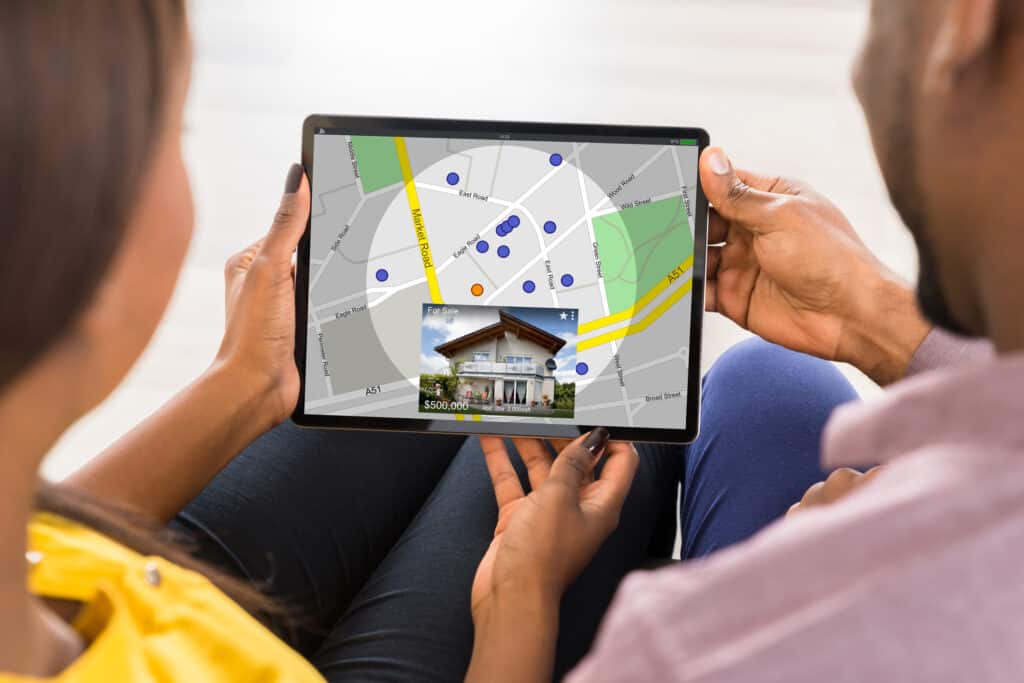UGANDA – Kampala |The advancement in technology has drastically transformed the way the world conducts business, especially in the real estate sector globally. Most sectors, including finance, media, healthcare, and retail, are embracing technology. This shift has drastically changed the way they operate.
Unfortunately, the Ugandan real estate sector, which contributed 12 trillion Ugandan Shillings of GDP in 2018 (according to a 2020 Center for Housing Finance in Africa report), is not fully adapting to this modern technology trend, according to Daily Monitor. While other sectors have progressed, the real estate sector continues to be dominated by traditional brokers who are a phone call away.
COVID-19 nudged some players further into the technology space. Spectrum Real Estate Solutions is an example. Their website now offers live chats connected to email addresses and WhatsApp numbers. They have a YouTube channel that provides virtual tours of the ins and outs of their properties, along with aerial views of their communities, roads, and amenities. Their channel gained over 3,000 subscribers during COVID.
“We already have virtual reality in mind… we are looking at how people are engaging with us. If they demand for virtual reality, we will do it. For now, we are using our YouTube channel to do viewings to properties,” Spectrum’s manager, Philip Muhoja says.
Jonathan Gombya, a property manager at Sasebo Solutions, said the slow uptake of technology could be because of the slow culture shift by the public.
“Disruption is there, but it is quite slow compared to what other sectors are facing. A number of platforms have been opened for real estate, such as Bulooka where people buy and sell properties, but it is not picking up. We have not had a culture shift where someone trusts to rent a property they have seen online without seeing it physically,” Mr. Gombya says.
Why the Mistrust?
The trend of transacting properties online started to pick up momentum when players such as Jumia entered the market in 2012 and OLX in 2014.
According to Mr. Gombya, fraudulent transactions on these platforms threw the digitization process in an unpleasant light. He says, with several buyers defrauded through fake transactions, there arose the ‘credibility question’.
The real estate industry in Uganda is largely unregulated. Just about anyone can claim to be a real estate agent. The Association of Real Estate Agents (AREA) brings together and oversees about 450 real estate agents, whereas there are hundreds of others who are completely unregulated.
Shirley Kongai, president of AREA, has seen years of fraudulent online accounts set up by unregulated brokers, and multiple listings of the same property by several brokers.
Ms. Kongai told Daily Monitor, “This fraud can only be reduced if we have all brokers licenced. By the time they get a license, we have inspected their business. This is so that we get to a point where if a broker is to list online, they have to post their licence number. We would be able to trace the person if anything goes wrong.”
Advantages of Embracing Real Estate Technology
Players that have embraced the digital space with success list several benefits of using digitalization. These, among others, include reaching a more extensive clientele that wouldn’t be possible through conventional ways.
In 2010, Spectrum Real Estate Solutions began listing properties on Facebook. They invested in their website the following year. Listing properties and land for sale on their website and social media gives the company access to markets it cannot reach physically.
“If I want to target people working in government, online advertising allows me to specifically target them. It gives me an edge over a broker who is waiting for a phone call,” Mr. Muhoja says.
Spectrum’s website attracts about 10,000 visitors every month, with many Ugandans living overseas in the USA, United Kingdom, Africa, Europe and Asia inquiring about properties.
“We have just sold a block of apartments in Najeera, some sales in Pearl Marina-Garuga, those clients came through our online platforms. You get leads online. You get a qualified lead if someone picks interest in a property and comes to see the property. Online is like a funnel. If I get 10 leads in a week, not all are buyers. Three will be qualified leads and out of them, one might buy,” Mr. Muhooja says.
Meeting the cost
There is a proportional cost involved in adapting to technology. According to Albert Mucunguzi, president at the Information Communication Technology Association of Uganda (ICTAU), the average cost of developing a mobile app in Uganda is $10,000 (Shs37m). Hosting a website costs a minimum of $100 (Shs370,000) or more.
For a successful digital platform, Daily Monitor outlines the lengthy process one has to undergo to attain feasibility.
These include;
- Setting up a website to show customers how unique they are
- Showcasing their services to customers
- Tracking the website visitors
- Adjusting marketing strategy to the collected data
- Responding to customer queries
- Telling one’s business story via social media sites to enlarge the reach
All this calls for a more significant investment budget into the digital transition.
PropTech Uganda’s experience with real estate and technology noticed that most of the social media platforms, websites, and apps launched online disappear within a year.
READ MORE LIKE THIS:
Top 3 Tips to Get the Best Out of Your Real Estate Agent



